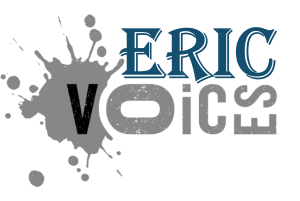Are you considering an AGPCNP career? There are several paths that you can take to achieve that goal. Earning a Master of Science in Nursing (MSN) with a specialization in adult gerontology is a popular choice for people with a particular affinity for an older patient population.
What is an MSN-AGPCNP?
The MSN-AGPCNP is a master’s-level degree with a specialization that enables nurse practitioners to treat the specific needs of an older patient population. Is an MSN in Nursing Administration Worth It
Earning this degree involves a combination of classroom instruction and practical experience. It typically takes 2-3 years to complete an MSN track with most programs also requiring an average of 500 clinical hours as well.
With this degree you will be able to:
- Provide leadership in diverse settings to promote high quality, safe, effective patient-centered care.
- Appraise, use and participate in the extension of nursing knowledge through scientific inquiry.
- Integrate current and emerging technologies into professional practice.
- Demonstrate responsive leadership, collaboration and management to influence the advancement of nursing practice and the profession of nursing and to influence health policy.
- Integrate clinical prevention and population health concepts to provide holistic, comprehensive nursing care for individuals and their families.
Having an MSN will also widen your career options, both in what you want to do and where you want to do it.
What Can You do with an MSN-AGPCNP Degree (and Certification)
With an MSN-AGPCNP degree you will have an opportunity to move in several career directions. But before you can pursue any of them, you must earn your board certification. Certifications are managed by independent organizations that work to ensure a consistency in knowledge and understanding for someone who wants to take on a specific career.
To earn an AGPCNP board certification you must pass a comprehensive, nearly 4-hour exam around all of the base level knowledge you should have for the care and treatment of older patients.
There are two primary organizations that certify AGPCNPs — The American Nurses Credentialing Center (ANCC) and the American Association of Nurse Practitioners (AANP).
The good news is that when you pass you won’t have to take the certification exam again for another five years. You’ll also be able to change your job title to AGPCNP-BC or Adult-Gerontology Primary Care Nurse Practitioner-Board Certified.
With a board certification you can capably increase the care options that you provide to an older population. Those include:
- Medication management where you ensure each prescription is current and relevant. This is important because many older patients continue to take medicine they may no longer need just because it was once prescribed.
- Diagnostic test plans including labs, biopsies and out-patient tests.
- Treatment plan formation to ensure a patient has the specific instructions for the management of age-related illnesses.
- Medical plan creation with the information needed so patients can age-in-place.
- Population-appropriate health assessments are important for older patients who have different physical needs and reactions. To accurately understand their health issues, it’s important to assess them based on age-specific criteria.
Where Can You Practice with an MSN in Adult-Gerontology
When you have earned an MSN in adult-gerontology, you will also set yourself up to take advantage of a wide range of practice opportunities. Opportunities exist in the public and private sectors, including government agencies, social service organizations, hospitals, nursing homes, quick care clinics and even retirement communities with primarily older residents.
There is a particularly growing need for AGPCNPs in:
Nursing Homes
You will have an opportunity to work with patients who are permanent residents and those in a transitional living arrangement. In both cases, you’ll help structure customized treatment programs that could involve leading physical exams, performing medical history reviews and managing medication needs.
Inpatient Facilities
Work here for an AGPCNP is a balance of care and analysis. You may find yourself evaluating labs and medical test results and then using that information to structure a care plan that meets a patient’s immediate health needs while also continuing that care post-discharge.
Private Practices
With your degree you can choose to work inside of an established medical practice or open your own private practice. In both scenarios, you’ll be offering primary care services including performing exams, ordering and reviewing labs and other tests, prescribing medication and working with the patient’s other providers to ensure a comprehensive care program.
There is also an opportunity here to make an impact particularly in traditionally underserved areas such as with clinics who treat the uninsured, caring for the homeless and practicing in rural settings.
“There are great benefits to practicing in a rural setting,” said Dr. VanRavenstein. “Not only is the AGPCNP providing much needed healthcare services but they may be able to get tuition reimbursement from one of several federal government programs.”
Emergency Departments
As you might expect, work in an emergency department is fast-paced and at times stressful. It is also extremely rewarding. In an emergency department, an AGPCNP is best prepared to provide care and, just as important, support to an older patient under duress.
Academia
Because an AGPCNP relies heavily on critical-thinking skills, they are distinctly dispositioned to take on a role in education. Particularly after having several years of practical experience. Their expertise is prized because they can bring a measured, experienced approach to classroom learning.











